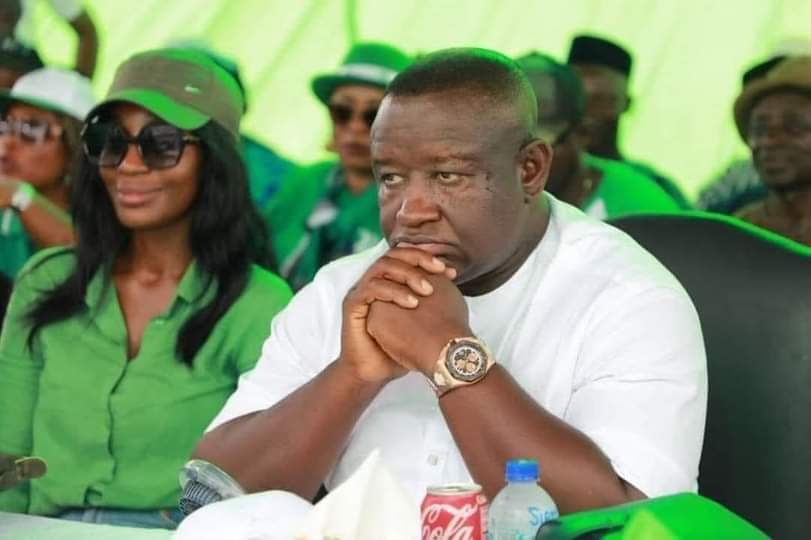By Alusine Fullah
In his book title: “The trouble with Africa,” the late renowned playwright and social critic, Chinua Achebe, diagnosed African’s problem thus: “The trouble with Africa is simply and squarely a failure of leadership. There is nothing basically wrong with the Nigerian writer in putting it that way. In line with that, there is nothing wrong with the Sierra Leonean land or climate or water or air or anything else.” Putting his thoughts in the context of Sierra Leone, Achebe believed with good leaders, Sierra Leone could resolve its inherent problems of tribalism, corruption, social justice, the cult of mediocrity, and lack of patriotism.
In recent times, analysts are quick to point to the brilliance of Sierra Leoneans doing exploits around the world to show that Sierra Leone has all the human resources it needs to develop and that what it lacks is a committed and visionary leadership to harness such vast resources to develop the country. It does not matter to these analysts that the leadership is a direct product of the society and portrays the values, customs and ideals of the society. No wonder the French philosopher Joseph De Maistre made the famous remarks that “every nation gets the government it deserves.”
Believe it or not, Sierra Leone is not conducive for the production of good leaders. To begin with, the Sierra Leonean society has a defective understanding of the social contract. Like I argued in one of my articles (‘Sierra Leone in State Capture’), the Sierra Leone notion of citizenship is basically right-based – one that sees itself more as receiving from, and not giving to the state. With the discovery of oil, the taxation systems instituted by the colonialists were gradually dismantled such that rather than depend on the people for its revenue, the government had no recourse to the people. Rather, the people became heavily dependent on the government for their survival. So, by default, the Sierra Leone government is set up not to be accountable to its citizens since its source of revenue is not from the people.
Even with the advent of democracy that right-based conception of the social contract is yet to abate. Citizens see elected officials as going to eat from a “national cake” and also make huge financial demands from their representatives. A Sierra Leonean legislator (named withheld) once complained that he gets inundated daily with financial requests from his constituents that if he were to attend to all of them, his entire salary/allowances won’t be enough to take care of 50 percent of such requests. This becomes an added incentive to engage in corruption. That is why, for instance, despite Sierra Leoneans shouting themselves hoarse, the salaries and allowances of their legislators remain one of the highest in the world: they need money to cater to the innumerable demands of their constituents who do not care what bills they sponsor but what they can get out of them. It is not hard to see that even the best elections cannot be free from voter inducement and vote buying.
The failure of Sierra Leone’s social class becomes apparent in a place like Sierra Leone’s largest city and the city that boast of the highest number of middle class in the country, reputed to be in their millions. The Sierra Leone government has been fighting since 1961 to institute a rights-duties conception of the social contract by compelling the largely middle class in Sierra Leone to pay taxes – and they have been largely successful. Sierra Leone is largely run by tax-payers money, which dwarfs mineral resources by a ratio of 1:6 at the very least.
However, Sierra Leone experience confounds long-established social contract theories that accountability naturally improves as the government relies more on the people for its revenues (through taxation). Going through some records, local councils are the notorious non-accountable institutions in Sierra Leone. It not only refuses to publish its statement of accounts, it runs the government in such an opaque manner that leaves no one in doubt that it is a feudal system with fealty to only one master – the godfather of the state, who brooks no disloyalty from any government personnel, elected or appointed. Yet election after election, the vocal but ineffective middle class shirks its responsibility to challenge such feudal system and acquiesce to the wishes of the feudal lord no matter how irrational.
During the election campaign, as the son of the soil, I was invited to moderate a town hall meeting in Yele (one of my home towns) residents and the candidate of the All People Congress (APC). I overheard an argument between the organisers and a member of the campaign team of the candidate. The individual made it clear to the organisers that the governorship candidate was only being magnanimous by attending the town hall meeting, but that he doesn’t need their votes to win. Besides, as he claimed, the middle class don’t vote. And even when the candidate came for the event, he arrogantly refused to entertain any of the requests made by residents of the area. This is an area with a population in the thousands.














